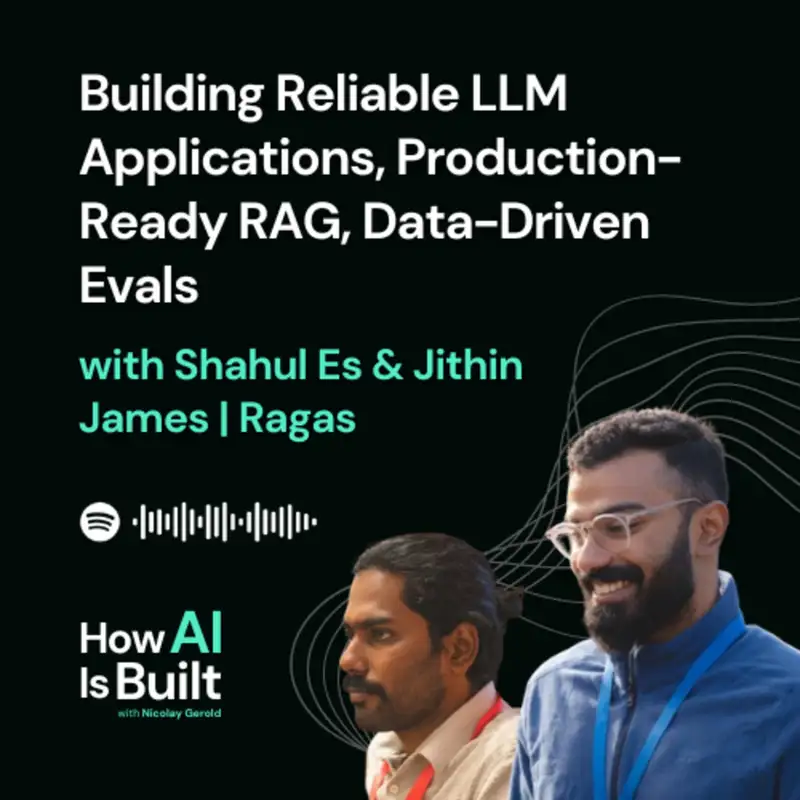In this episode of "How AI is Built", we learn how to build and evaluate real-world language model applications with Shahul and Jithin, creators of Ragas. Ragas is a powerful open-source library that helps developers test, evaluate, and fine-tune Retrieval Augmented Generation (RAG) applications, streamlining their path to production readiness.
Main Insights
- Challenges of Open-Source Models: Open-source large language models (LLMs) can be powerful tools, but require significant post-training optimization for specific use cases.
- Evaluation Before Deployment: Thorough testing and evaluation are key to preventing unexpected behaviors and hallucinations in deployed RAGs. Ragas offers metrics and synthetic data generation to support this process.
- Data is Key: The quality and distribution of data used to train and evaluate LLMs dramatically impact their performance. Ragas is enabling novel synthetic data generation techniques to make this process more effective and cost-efficient.
- RAG Evolution: Techniques for improving RAGs are continuously evolving. Developers must be prepared to experiment and keep up with the latest advancements in chunk embedding, query transformation, and model alignment.
Practical Takeaways
- Start with a solid testing strategy: Before launching, define the quality metrics aligned with your RAG's purpose. Ragas helps in this process.
- Embrace synthetic data: Manually creating test data sets is time-consuming. Tools within Ragas help automate the creation of synthetic data to mirror real-world use cases.
- RAGs are iterative: Be prepared for continuous improvement as better techniques and models emerge.
Interesting Quotes
- "...models are very stochastic and grading it directly would rather trigger them to give some random number..." - Shahul, on the dangers of naive model evaluation.
- "Reducing the developer time in acquiring these test data sets by 90%." - Shahul, on the efficiency gains of Ragas' synthetic data generation.
- "We want to ensure maximum diversity..." - Shahul, on creating realistic and challenging test data for RAG evaluation.
Ragas:
Jithin James:
Shahul ES:
Nicolay Gerold:
02:03 Introduction to Open Assistant project
04:05 Creating Customizable and Fine-Tunable Models
06:07 Ragas and the LLM Use Case
08:09 Introduction to Language Model Metrics (LLMs)
11:12 Reducing the Cost of Data Generation
13:19 Evaluation of Components at Melvess
15:40 Combining Ragas Metrics with AutoML Providers
20:08 Improving Performance with Fine-tuning and Reranking
22:56 End-to-End Metrics and Component-Specific Metrics
25:14 The Importance of Deep Knowledge and Understanding
25:53 Robustness vs Optimization
26:32 Challenges of Evaluating Models
27:18 Creating a Dream Tech Stack
27:47 The Future Roadmap for Ragas
28:02 Doubling Down on Grid Data Generation
28:12 Open-Source Models and Expanded Support
28:20 More Metrics for Different Applications
RAG, Ragas, LLM, Evaluation, Synthetic Data, Open-Source, Language Model Applications, Testing.
 S1E4
S1E4